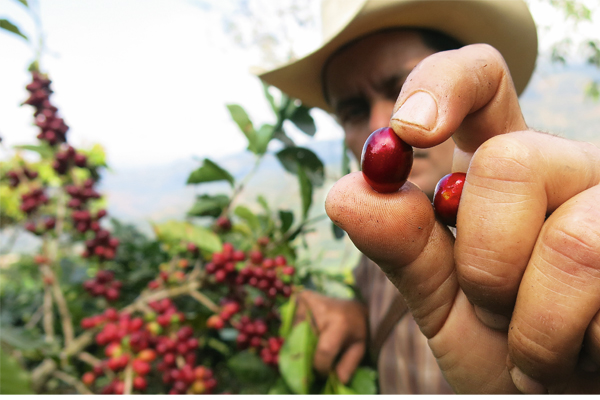Brands and retailers announce commitments to Fair Trade and sustainable coffee

Fair Trade USA, in collaboration with the Sustainable Coffee Challenge, has announced a group of joint commitments with major partners deeply committed to sustainable coffee sourcing and improved farmer livelihoods. This announcement comes at a pivotal moment for coffee farmers around the world who have been struggling with low C-Market prices. The unstable coffee market has millions of producers looking for the price assurances and community development funds provided by the Fair Trade model.
National retailer Target Corporation has committed 100% of the company’s Archer Farms coffee in both bags and pods to be certified sustainable by 2022 according to the Fair Trade USA standard or an equivalent. In collaboration with Fair Trade USA, they will partner with suppliers who meet Fair Trade social, economic and environmental standards, ultimately striving to enable coffee farmers to receive better prices and invest in their communities.
Beyond retail, a range of food service organizations are stepping up with significant Fair Trade coffee commitments. Chartwells Higher Ed will serve Fair Trade coffee at all 280 universities where they have operations, UCLA is committing to continue 100% Fair Trade coffee sourcing and increase on-campus education to showcase and contextualize their efforts, and Bon Appetit Management Company, which provides on-site restaurant services for universities, corporations, and museums in 34 states, has committed to sourcing all of its coffee from either from third-party-certified farmers (including Fair Trade producers), or through its Farm to Fork network of small, local, owner-operated roasters.
Finally, a range of additional supporters, including NGO movement allies and suppliers are leveraging their networks and resources in support of the joint commitment. Atlas Coffee Importers has committed to educate their employees and roaster customers about how the mechanisms of the Fair Trade model support farmers. Meanwhile, the Sustainable Purchasing Leadership Council (SPLC), a network of hundreds of institutional purchasers, is engaging their network to educate about the issues facing the coffee industry and ways to take action through purchasing policies and sourcing practices.
Together, these commitments will help to increase market access for farmers looking to sell their coffee on sustainable terms and find an alternative to the volatility of conventional coffee markets. For consumers, it means greater availability of Fair Trade goods and better communications about the impacts of the model.
“We are humbled by and deeply grateful for the commitment brands are taking in support of coffee-growing communities at a time when farmers need it most,” said Ben Zwerling Baltrushes, vice president of coffee at Fair Trade USA. “In order to ensure the future of coffee, we must come together to create a sustainable market for the hard-working farmers that make it possible.”
“Growing coffee for a farmer at this moment is not sustainable at all,” said Lenin Tocto Minga, commercial agent at the APROCASSI Coffee Co-operative in Peru. “Farmers are very committed to growing coffee, but they are quickly losing hope. They are effectively losing money every day with these (current market) prices.”
Fair Trade USA and movement allies will continue to work to increase the impact of the Fair Trade model and invite others interested in scaling sustainable coffee sourcing to continue the momentum by joining with their own commitments in the coming months and years.



